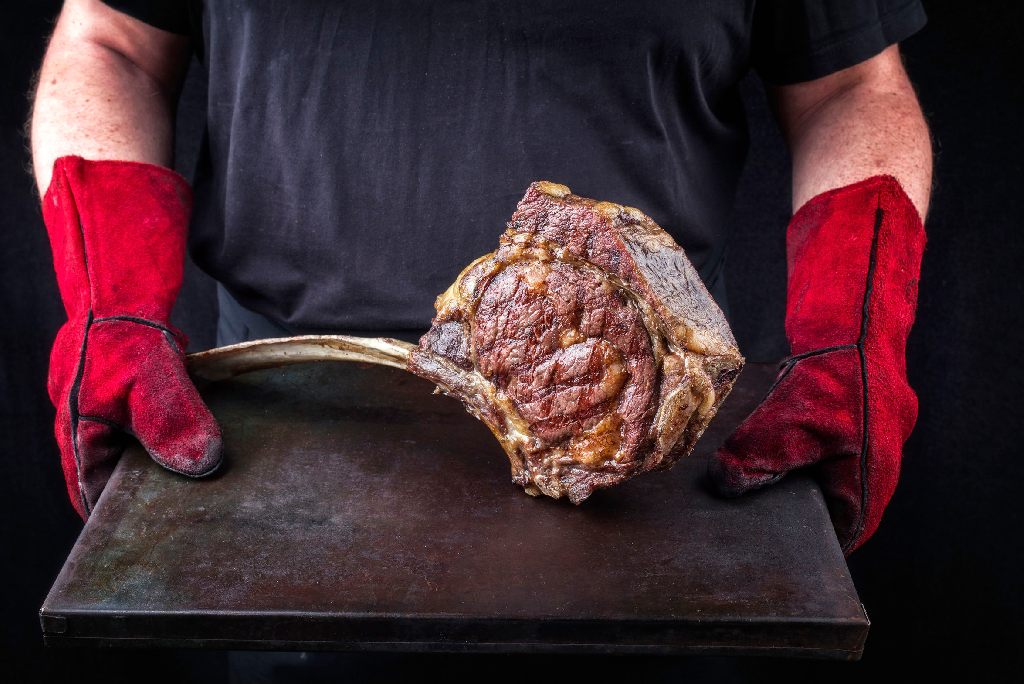A meat-free BBQ? I think not!

A spate of alternatives to meat are starting to emerge on retail shelves and online; most of which are made from plant and vegetable proteins and grain.
What do these developments mean for the meat industry in particular, and agriculture in general? Are they just a flash in the pan, or are they a long-term threat?
Judging by recent developments, they are not going to disappear soon. Faux meat and veganism are challenges that must be faced head on, rather than treated as something that will go away if ignored.
The meat industry certainly appears to have more to lose than the plant industry sector from these developments, although not all crops may benefit, and the jury is still out on broadacre crops in dryland regions.
As one recent connoisseur of traditional natural meat-based food observed, the taste and texture of mystery bags of vegan sausages “is redolent of sawdust, with an odd aftertaste that even dollops of tomato sauce and onions could not conceal’’. But not all critics are that harsh.
Nevertheless, some people have already scratched meat off the shopping list and the bucket list, pledging meat-free days and would you believe it, meat-free BBQs!
The meatless diet bandwagon is gaining momentum, with entrepreneurs and investors sinking their dough into developing supposedly more scientific and tastier alternatives than bangers and mash.
And we are not talking peanuts here. In the US, the Nasdaq-listed faux meat company Beyond Meat, a Los Angeles-based producer of plant-based meat substitutes founded only 10 years ago, was valued in July this year at A$17 billion, a rise of A$11.5 billion in just two months.
According to Wikipedia, the company develops and manufactures a variety of protein-based food products and is now marketing globally a non-meat hamburger complete with tomato sauce, lettuce and beetroot.
The vegan meat substitutes are made from mixtures of pea protein isolates, rice protein, mung bean protein, canola oil, coconut oil, and other ingredients like potato starch, apple extract, sunflower lecithin, and pomegranate powder with a range of vitamins and minerals. Beef substitute products that "bleed" are achieved by using beet juice.
For the past five years, the company's products have included Beyond Chicken, Beyond Beef and Beyond Sausage, plus vegetable protein-based burger patties. KFC in the US is said to be trialing Beyond Meat’s plant-based nuggets and boneless wings.
According to some market analysts, global demand for plant-based meat is expected to reach $US27.9 billion by 2025, compared with the current value of the global meat industry which is estimated at $US1.4 trillion.
Given this wide difference, you might ask why meat and grain producers should be concerned.
The reason is that history tells us complacency is a death warrant when disruptive technology displaces an established technology.
You only have to look at examples in other industries where traditional players ignored, devalued or failed to digest the strength of newcomers and new technology.
Kodak, for example, invented the digital camera, but suppressed that technology to protect its film sales business. Within 20 years, despite reaching a peak in global sales of around US$16 billion, it was forced into bankruptcy by so called digital pirates.
Likewise the newspaper industry.
In the US, print newspaper revenue peaked at about US$65 billion in 2000 and fell to about US$11 billion in 2017. Meanwhile, Facebook and Google captured about 75% of all digital advertising, and Amazon is a distant but significant third. All other publishers are competing for the remaining digital market share.
We rest our case. Complacency and procrastination are not viable options. If our segment of the agricultural industry wants to continue to be part of the menu and have a seat at the dinner table or the BBQ, then we need to get off our backsides and ensure that our industry does as well.
Unfortunately, these new disruptive meat substitutes and vegan vandals will be allowed to fly under the radar in terms of nutritional benefits and diet impacts for many years to come, whereas meat continues to be minutely scrutinized under these categories, as well as carcinogenic attributes.
The prospect of eating plant-protein based turkey and pork crackling at Christmas time, with baked and mashed potatoes smothered with synthetic butter and pudding covered in cream made from artificial milk, is not our cup of tea.
This is serious. Meat-based recipe books may soon be declared redundant. Contact your local CWA branch immediately. Mobilize the FARMY Army, otherwise there might be plenty of meat in the paddock, but none on the table, and that’s not a prospect we relish.
by Michael Guest in Latest News
Share this post
Posts this year
- October 2024 (1)
- September 2024 (1)
- August 2024 (1)
- November 2023 (1)
- June 2023 (1)
- February 2023 (2)
- November 2022 (1)
- October 2022 (1)
- July 2022 (2)
- June 2022 (1)
Archived Posts
- Posts in 2023
- Posts in 2022
- Posts in 2021
- Posts in 2020
- Posts in 2019
- Posts in 2018
- Posts in 2017
- Posts in 2016
